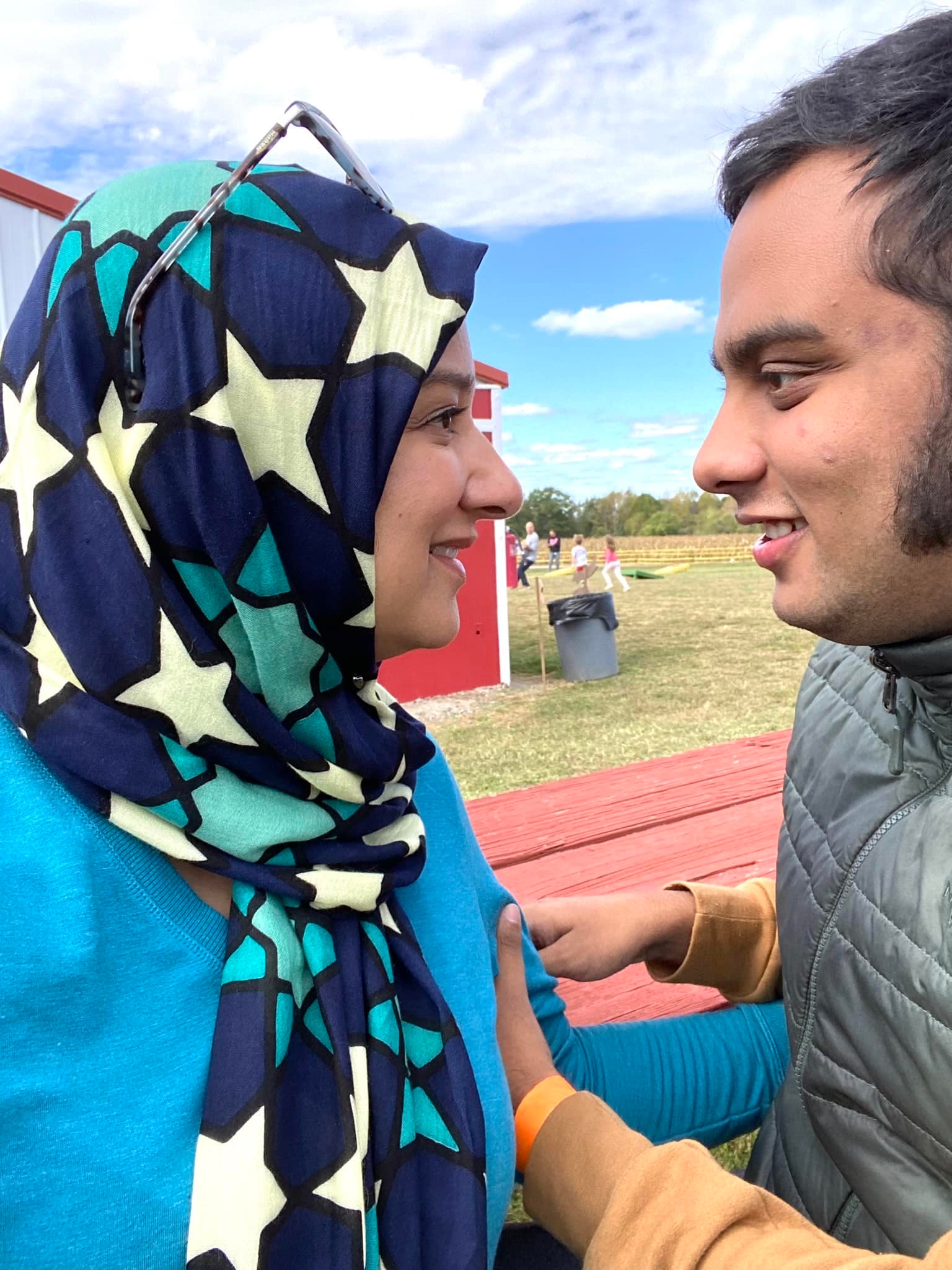Alhamdulillah for Gratitude, Especially During the Darkest of Times
Faith
|
Nov 23, 2022
|
3 MIN READ

The author's son at the beach this past summer.
Alhamdulillah is not what you feel, but how you feel about what you feel.
Join me in sitting in that sentence, that thought for a while.
I’ve spent a lot of time in the past two decades being frustrated or upset with the hands dealt to my children, my family and myself and then being upset with myself because I knew I should be grateful for all the blessings Allah (S) gave to me and all the things He saved me from that I would never know. It’s been a vicious cycle.
Loved ones around me have always gently advised me to be grateful. To find contentment in whatever Allah (S) wills for me and my loved ones. At times, it seemed like my parents, in-laws and other family members had some iman level unlocked that eluded me. I mean, sure I’m a pretty even-keeled woman who has tried to find contentment and gratitude in what Allah (S) has provided.
But for years, I didn’t feel as solid in my trust, in my Alhamdulillah. Maybe you’ve been in this space at some point in your life as well. If so, I see you, my sister.
A few summers ago, maybe the first summer of the COVID-19 global pandemic, I was talking with a dear friend of mine who was going through her own family crisis. It was one of those situations I was all too familiar with, where helping one’s loved one to get help seemed impossible. But without help, the house of cards would immediately collapse. And in the middle of all of it, making tough decisions that went against the grain of traditional or familiar family care – decisions that benefit a holistic family rather than just one person – felt impossible.
We talked about how we both know that we must trust in Allah (S) to guide us through, that He alone knows all of us struggling in this world must struggle, and what blessings will come of it. We talked about how feeling gratitude amidst situations like these, or when the world feels like it’s burning down and hope evades us, feels impossible. But how that is also fraught with guilt from not being able to find gratitude for whatever Allah (S) has given us – good and bad.
We both wanted to say Alhamdulillah and thank Allah (S), but we were finding it difficult.

My eldest son, who is profoundly autistic, and I this past fall at a local pumpkin patch.
That’s when my friend said to me, “Alhamdulillah is not what you feel, but how you feel about what you feel.”
It was a powerful sentiment related to her by another brilliant and lovely mutual friend of ours who also had seen her share of hardships and challenges.
And immediately, it brought me ease. Because think about it. Chances are we all will, at some point in our lives, experience hardships, challenges, grief and sorrow. To be able to hold onto the rope of Allah (S) during those hard times as well as during the even-keeled or good times is a great test for us. And, as I have admitted above, I’ve not always been able to feel gratitude or contentment during these most difficult times in my life.
However, Alhamdulillah.
Alhamdulillah for my ability to keep praying even when it felt hollow, to keep fasting even when it felt like just a food/drink fast. To keep doing what I needed to be doing, even though I was questioning God and begging for Him to make sense of it all.
Alhamdulillah that Allah (S) held me and all of my despair in His infinite mercy and love. Alhamdullilah and gratitude was not what I felt in those moments, but in a more macro way, it was how I felt about whatever hardships I was drowning in.
I’ve drowned many, many times in this life. Maybe you have too. But I am so grateful that I’ve been able to keep Alhamdullilah centered in my soul.
Here in the U.S. Thanksgiving is a season of gratitude, but really for Muslims and hopefully for all of humanity, this season is something we try and inculcate throughout our lives. We may not always have the capacity to feel gratitude or thankfulness about whatever immediate thing is happening in our lives, but “Alhamdulillah is not what you feel, but how you feel about what you feel.”
Alhamdulillah for that.
Subscribe to be the first to know about new product releases, styling ideas and more.
What products are you interested in?

